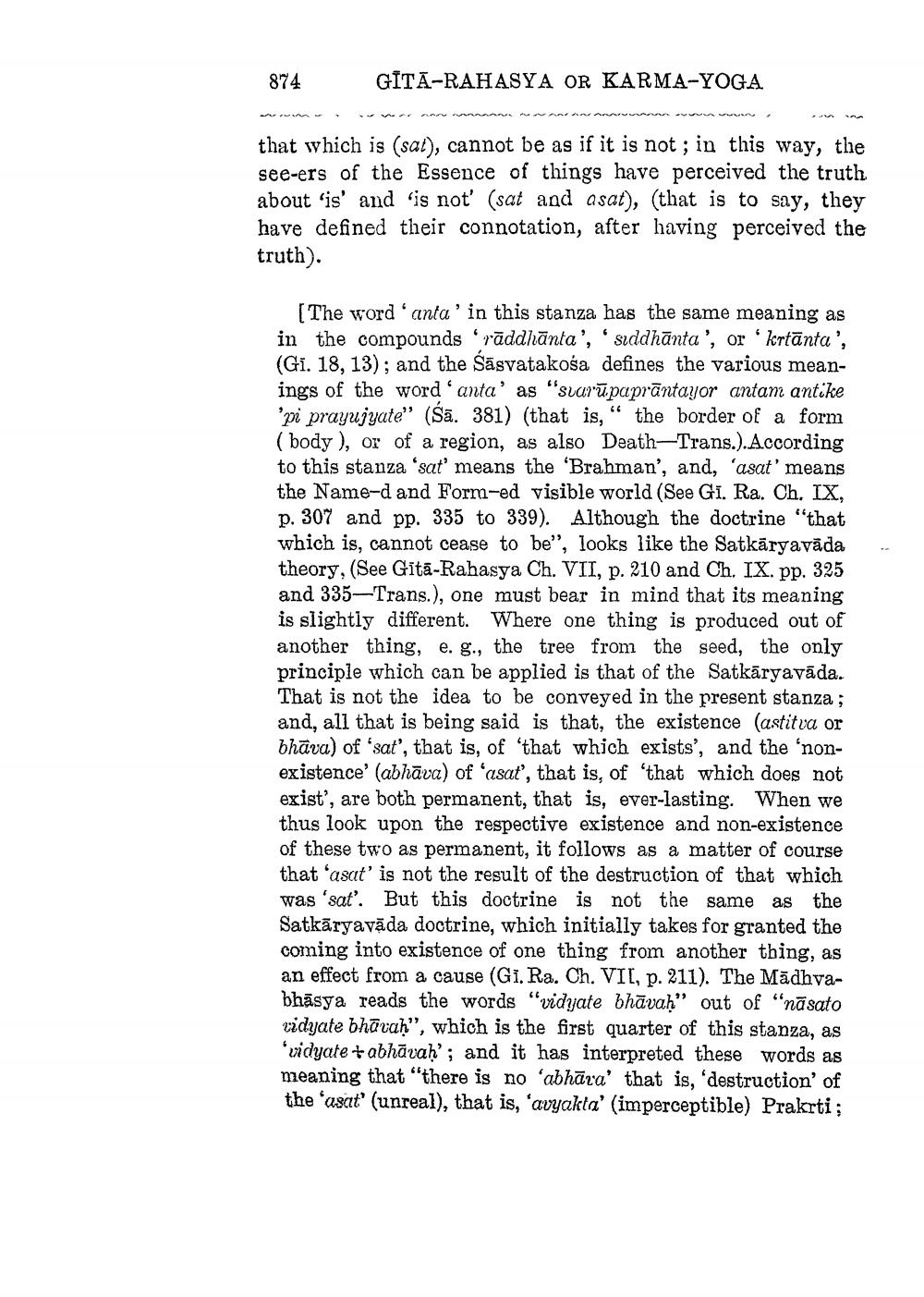________________
874
GITĀ-RAHASYA OR KARMA-YOGA
that which is (sat), cannot be as if it is not; in this way, the see-ers of the Essence of things have perceived the truth about 'is' and 'is not' (sat and asat), (that is to say, they have defined their connotation, after having perceived the truth).
(The word 'anta' in this stanza has the same meaning as in the compounds rāddhānta', siddhānta', or 'krtānta', (Gi. 18, 13); and the Sāsvatakośa defines the various meanings of the word ' anta' as "suarūpaprāntayor antam antike 'pi prayujyate" (Sa. 381) (that is," the border of a form (body), or of a region, as also Death-Trans.). According to this stanza 'sat means the 'Brahman', and, 'asat' means the Name-d and Form-ed visible world (See Gi. Ra. Ch. IX, p. 307 and pp. 335 to 339). Although the doctrine "that which is, cannot cease to be", looks like the Satkāryavāda theory, (See Gītā-Rahasya Ch. VII, p. 210 and Ch. IX. pp. 325 and 335—Trans.), one must bear in mind that its meaning is slightly different. Where one thing is produced out of another thing, e. g., the tree from the seed, the only principle which can be applied is that of the Satkāryavāda. That is not the idea to be conveyed in the present stanza; and, all that is being said is that, the existence (astitva or bhāva) of 'sat', that is, of 'that which exists', and the 'nonexistence' (abhāva) of 'asat', that is, of 'that which does not exist', are both permanent, that is, ever-lasting. When we thus look upon the respective existence and non-existence of these two as permanent, it follows as a matter of course that asat' is not the result of the destruction of that which was 'sat'. But this doctrine is not the same as the Satkāryavāda doctrine, which initially takes for granted the coming into existence of one thing from another thing, as an effect from a cause (Gi. Ra. Ch. VII, p. 211). The Mādhyabhäsya reads the words "vidyate bhāvah" out of "nāsato vidyate bhārah", which is the first quarter of this stanza, as 'vidyate tabhāvah'; and it has interpreted these words as meaning that there is no 'abhāva' that is, 'destruction of the "asat' (unreal), that is, 'avyakta' imperceptible) Prakrti;




